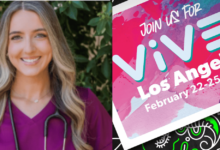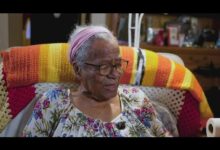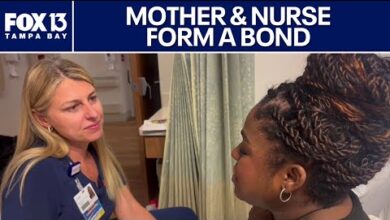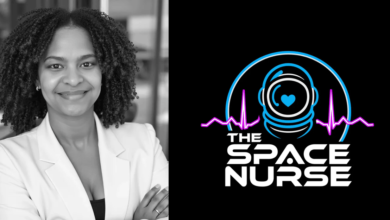Student midwife develops app to combat skin tone bias
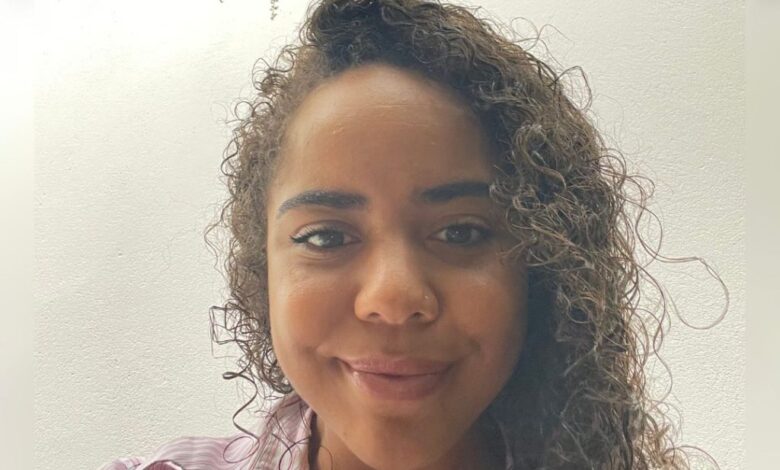
A student midwife has designed an app aimed at improving the detection of conditions that are sometimes missed among women with darker skin.
Ruby Jackson, who has recently finished her midwifery training at the University of Brighton, designed Melanatal as part of a final-year project – and has now secured funding and support to roll it out.
“Black and brown women felt really invisible within our services”
Ruby Jackson
Melanatal, which remains in development, aims to improve midwifery professionals’ understanding of, and ability to spot, conditions on Black and brown skin which are frequently missed due to a lack of exposure to minority ethnic patients, gaps in training or racism and bias.
She said: “During my training at university, I noticed within learning resources, which filtered into practice as well… there was a massive lack of representation of Black and brown mothers and babies.”
Ms Jackson said the idea came to her following an international placement, as part of her training, at a neonatal intensive care unit in Ghana.
There, students were shown an infant with jaundice, and Ms Jackson realised it was the first time she had ever see how the condition presented on a baby with Black skin.
“We were thinking about poor outcomes amongst this demographic of people,” she said.
“It was kind of a lightbulb moment. I was like, ‘Wow, we really need to improve representation of Black and brown people within medical education’ – in my case, midwifery education. “
When she came to plan her third-year dissertation, Ms Jackson decided to research the extent of the issue and produced a practice change proposal to help improve, via a digital platform, the education of midwives about how conditions present in minority ethnic mothers and their babies.
Her plan for the app got her into the NHS Clinical Entrepreneur Programme. After this, in June she successfully pitched it to a competition run by Amazon Web Services Healthcare, Cogniss and The Validitron which won her a 12-month mentorship and support to make the app.
The smartphone app will contain a bank of knowledge about conditions such as preeclampsia, placenta previa and placental abruption which present differently and, Ms Jackson said, disproportionately impact Black and brown women.
It will highlight signs and symptoms for clinicians, as well as be offered to the mothers themselves.
She further explained that the app will contain information and other helpful advice which she would have wanted during her training and placements.
Ms Jackson, who is set to qualify as a midwife at the end of the year, said the app would soon be at the ‘minimum viable product’ stage, before it is tweaked and hopefully rolled out in clinical settings.
“[The app might] help improve the detection rates and uptake for treatment,” said Ms Jackson.
“A lot of the research showed that a lot of Black and brown women felt really invisible within our services and not seen.
“We want to improve that and bring a platform to improve representation and diversity within midwifery education.”
Lucy Dentice, national programme manager of the NHS Clinical Entrepreneurs Programme, added: “Ruby’s journey with Melanatal is truly inspiring.
“Her innovative approach, shaped by her experiences in Ghana, highlights her unwavering commitment to addressing health inequalities for black and brown communities.
“It has been a privilege to support her through the NHS Clinical Entrepreneur Programme, and I am excited to see the positive impact her app will have on maternal and neonatal care.”


